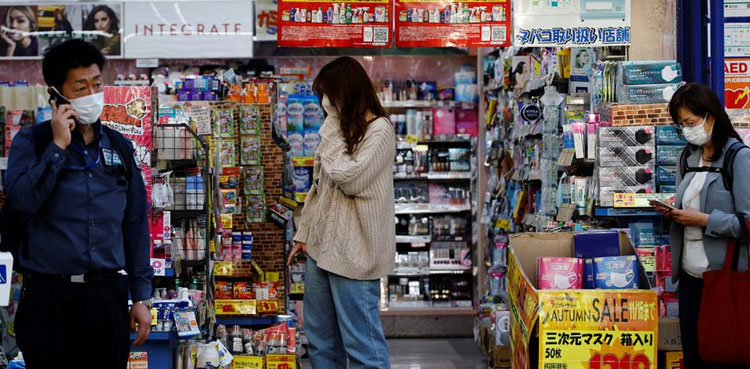
TOKYO: Japan’s core consumer inflation accelerated to a 40-year high in October as a weak yen pushed up the cost of imported commodities, which were already surging due to global supply constraints.
The data suggests Japanese firms may be shaking off their deflationary mindset as they gradually raise prices of everything from fuel to food in response to higher costs.
The nationwide core consumer price index (CPI), which excludes volatile fresh food prices but includes energy, was 3.6% higher in October than a year earlier, versus a 3.5% rise expected by economists, and accelerating from the prior month’s 3.0% annual gain.
The jump was the largest since February 1982.
It also confirmed CPI growth remained above the Bank of Japan’s (BOJ) 2% inflation goal for a seventh straight month.
“I haven’t changed my view that the rise will start to slow down soon,” said Takeshi Minami, chief economist at Norinchukin Research Institute, noting declines in global grain prices.
A slight rebound by the weak yen and planned government support for consumers to pay for higher energy bills would also rein in prices.
Read more: Indian rupee slips, premiums plunge to 11-year lows
“I expect inflation to peak by year-end and the rise in prices to start diminishing in the new year,” Minami said.
Despite broadening price pressures, which are a growing concern for households, however, the BOJ will not join a global trend of tightening monetary policy through interest rate hikes.
BOJ Governor Haruhiko Kuroda reiterated on Thursday a pledge to maintain monetary stimulus to support a fragile economy still recovering from the COVID-19 downturn and facing inflation that remains weak by the standards of other developed countries.
Kuroda has argued that global commodity costs account for half of the magnitude of price rises and that cost-push inflation will not last long.
Japan’s consumer inflation will likely reach 3% for the current fiscal year, ending in March, but the pace will fall to half that rate next fiscal year as commodity and other cost-push factors run their course, Kuroda has said.
In a sign subcontractors are struggling with wholesale price pressures, the corporate goods price index jumped 9.1% in the year to October.
from International News Today - Breaking News, US News, World News https://ift.tt/yfYnbCZ
via IFTTT